Affiliate marketing is one of the most common ways to make money online, and at its heart, it's quite simple. You just have to promote someone else's products, and when someone buys through your link, you'll take a cut. In practice, though, it's much more difficult than that.
First and foremost, affiliate marketing is not a get-rich-quick scheme. You absolutely can make a lot of money with this business model, but it won't happen overnight. Moreover, you need to actually build trust with your audience so that they'll buy through your links.
You'll also have to think about legal factors as an affiliate marketer and much more. I've built a successful and profitable niche site that makes money through affiliate marketing each month, and based on my experiences, I'll show you the top affiliate marketing mistakes to avoid.
1. Neglecting Your Website
Many new affiliate marketers (and business owners, for that matter) ignore the vital first steps and jump straight to the "making money" part. However, you will not make money unless you've done the initial steps. Yes, they're boring—but they are also necessary.
Ignoring your website is one of the biggest mistakes you can make. You must have a visually-appealing design, fast loading speeds, and high levels of security. The latter two can partially be achieved through picking the right hosting provider.
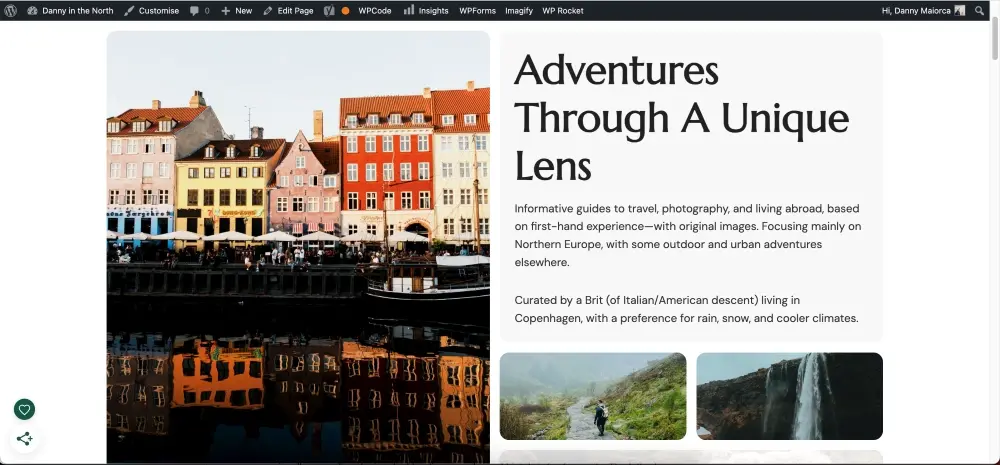
Hosting is pretty affordable for affiliate sites; you can get started for as little as $0.99 per month. When looking for a hosting provider, consider important elements like free SSL certificates and diverse server locations. Verpex offers both of these, plus 24/7 support and other advantages.
To ensure that your site runs quickly, you can check your website speed with Google's PageSpeed Insights tool. You can also do each of the following:
Limit your image sizes and use an optimizer
Choose compatible fonts
Lazy-load elements
Consider also using a content delivery network (CDN) to speed up your website. You’ll find plenty of free options.
2. Reviewing and Recommending Products That You Don't Use
Some products have excellent affiliate programs, and it's very easy to let the lure of making money cloud your thinking. However, "reviewing" products that you don't use is a huge no-no. As Google has shown with its recent Helpful Content Updates, you run the risk of having your site heavily penalized.
You absolutely can still review products and rank well, but you should only recommend things that you actually would use yourself. Moreover, you need to actually order and try each product —while being objective throughout.
There are several ways you can highlight your expertise to Google. Take original photos of your product, and show yourself using it. You should also not be afraid to explain why you wouldn't recommend something if you feel like it's not worth buying.
Your audience can see through a fake review, so it's not worth risking a reputation loss for a quick buck.
3. Adding Affiliate Links Without Intention
Contrary to popular belief, blindly adding affiliate links to your articles is not going to suddenly generate huge amounts of money. Posting too many links will put off your audience, and if you don't make it clear why these links should be in your article, you'll also struggle to generate sales.
Every affiliate link you add should be intentional. It needs to add to your content without distracting from the main point. For example, you can add widgets while speaking about what a person's options are beforehand.
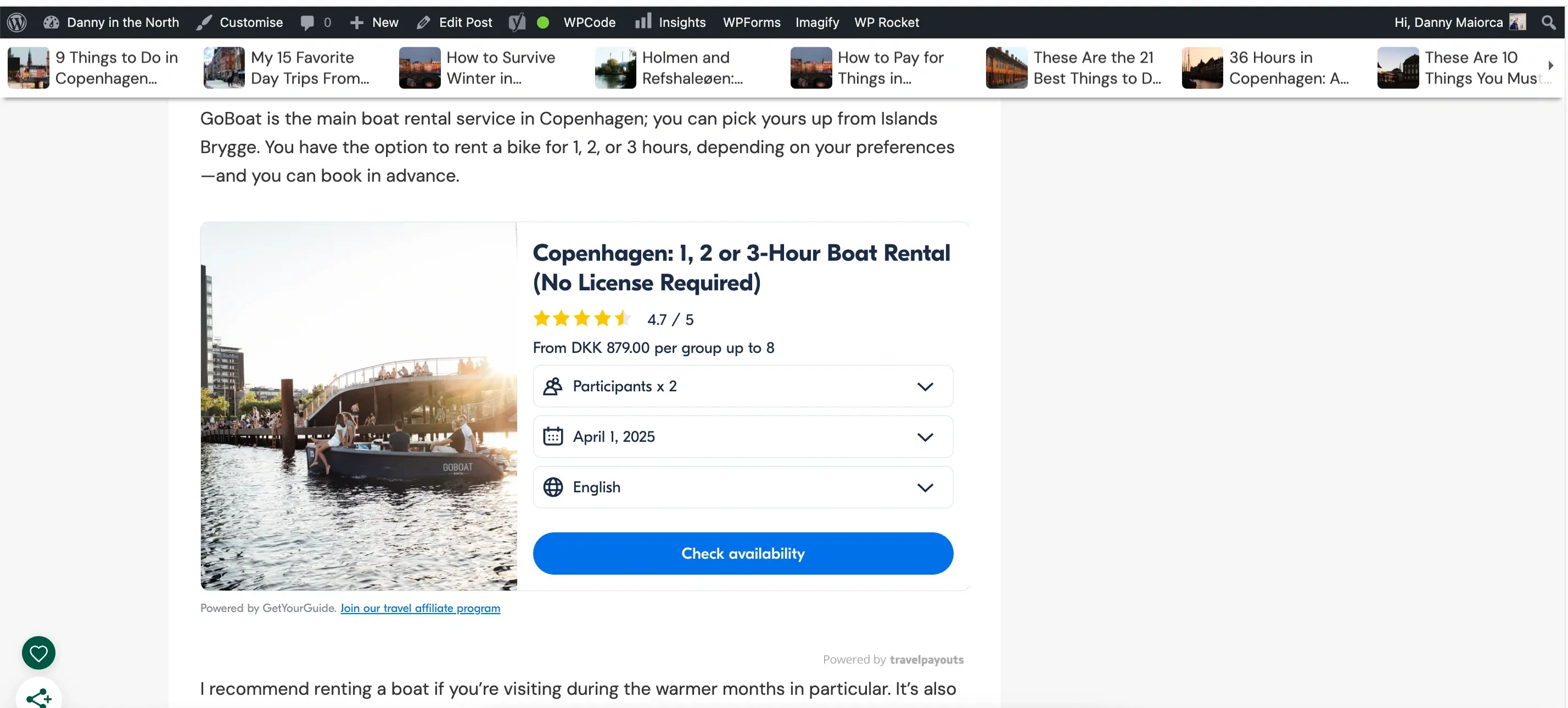
In each place you promote affiliate links, you should also use calls to action (CTAs). That way, the user will know what you want them to do.
4. Not Actually Caring About Your Audience
Affiliate marketing has received a bad reputation in previous years because of some bad players who didn't actually care about their audience. The only thing they were interested in was to make money through their links, regardless of whether it negatively affected a reader.
The same way to build any successful business is to care about your customers. When you're an affiliate marketer, the people buying through your links are your customers. Therefore, you should care deeply about them.
Your main objective should be to try and provide the best possible user experience. This means offering valuable content and recommending products that will actually solve their problems.
5. Talking About a Topic You Know Little About
Another big problem that happens in all forms of business, but especially content creation, is obsessing over the "highest-paying niche". When it comes to affiliate marketing, this is a mix of choosing programs just because they have high commission rates. It could also mean choosing a niche because the ad revenue RPM is higher.
The truth, though, is that you only make a lot of money in any niche by speaking about something you know about. There are so many websites in each category where it's very clear that the person running it doesn't know what they're talking about. So, they either fail to rank or do not gain the trust of their target audience.
You can make money from affiliate marketing in virtually anything these days, and as such, you should talk about a topic you know. Just as importantly, you should also pick a niche that you're passionate about. That way, you'll improve your long-term chances of success.
6. Not Understanding SEO
Search engine optimization (SEO) is one of the best ways to build an audience, especially for an affiliate site. While some elements are complex, you should at least understand the basics of on-page SEO. This includes understanding what users are searching for.
Another crucial part of SEO is understanding user intent. These are split into:
Transactional: The user wants to buy something.
Commercial: The user is exploring different purchase options.
Informational: The user wants to discover information on a topic.
Navigation: The user is looking for something specific.
Your website content should have a mixture of each one, and it's good to strike a balance. If you have 100% transactional content, it'll probably put users off; it's obvious that you're looking to make a quick dollar.
Keeping an eye on keyword difficulty is also wise. As a new website, targeting keywords that are easier to rank for is ideal for getting faster wins. However, you shouldn't be scared of more challenging keywords that you can rank for over time – as you gain more topical authority.
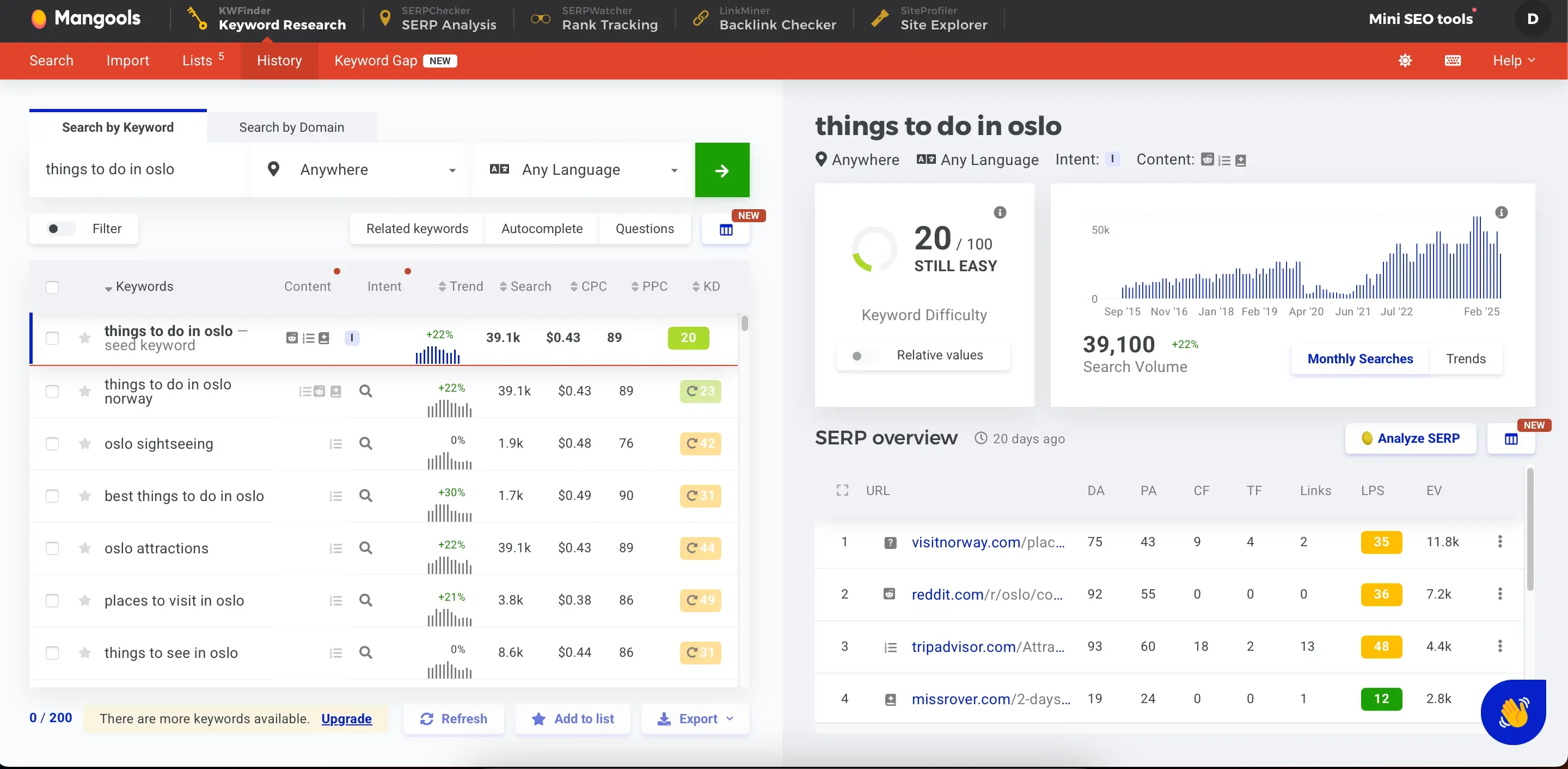
To help enhance your SEO efforts, you can use tools like Semrush, Ahrefs, and Mangools. Mangools is the most budget-friendly option, while you can get 10 daily requests with the free version of Semrush. You may also want to consider leveraging AI in your SEO.
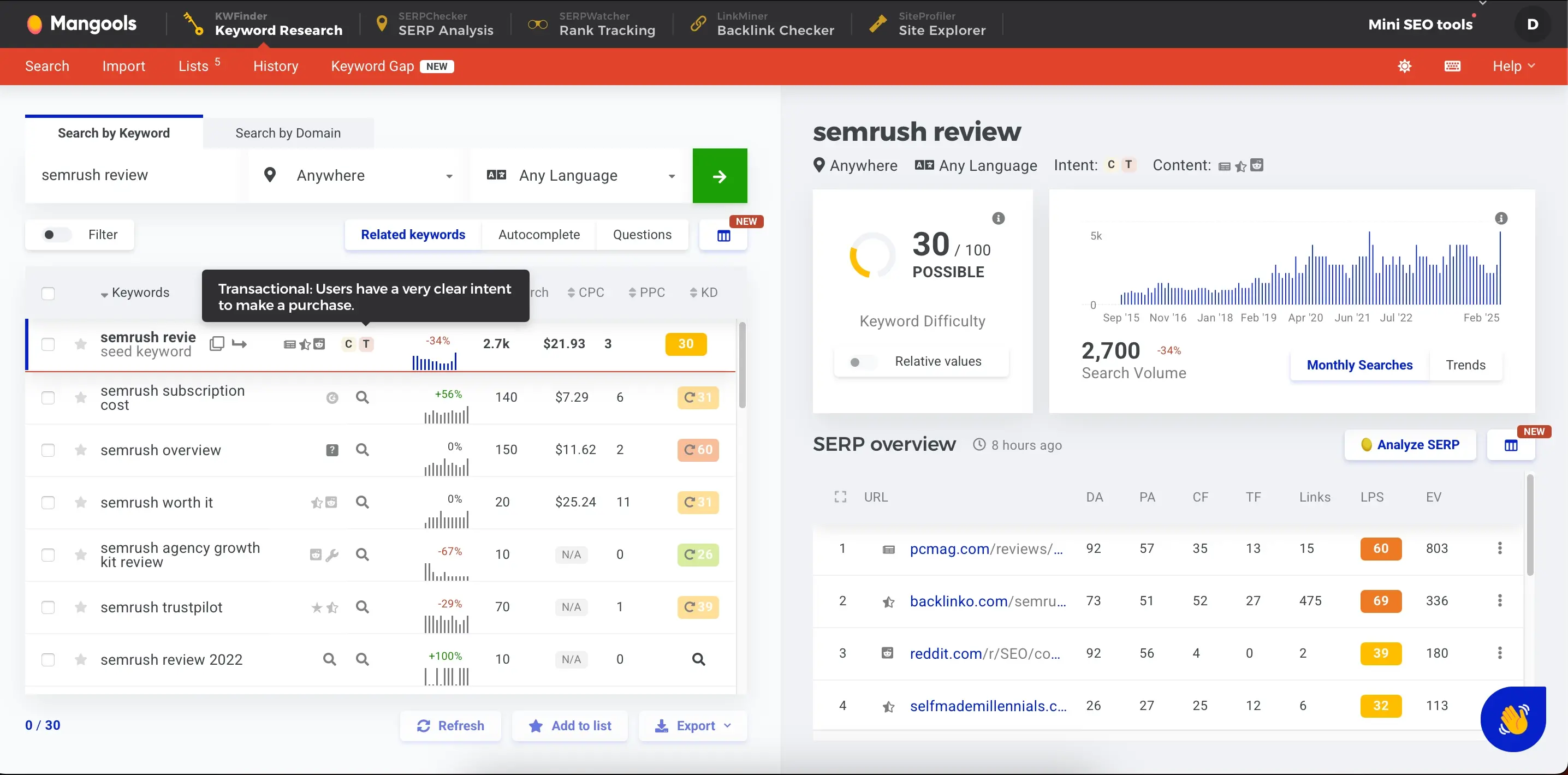
7. Choosing Too Many (or Not Enough) Affiliate Programs
To make money from affiliate marketing, you'll need to pick at least a few high-quality programs. Relying too much on one is very risky, and you also won't get anywhere near your potential. But on the flip side, you should not pick too many. Doing so will be overwhelming, and you won't have a clear enough focus.
Start by picking 2-3 high-quality affiliate programs. Many users start with Amazon Associates, but I don't recommend this if you have no traffic; you need to make three sales in 180 days to avoid an account closure. Moreover, the commission rates aren't very good.
Look for affiliate programs in your niche, and consider using aggregators. For example, you could choose Travelpayouts if you're in the travel niche; this gives you access to tour operators, eSIM providers, accommodation sites, and more. I don't recommend joining individual programs until you've got at least 5,000 monthly pageviews.
8. Not Letting Your Audience Know When Affiliate Links Are in Your Article
Not disclosing your affiliate links is not only deceitful; it can land you in a lot of trouble if you aren't careful.
By law, you must share that you have affiliate links in an article. You can do this at the top of your page with a simple message like:
"This article contains affiliate links. If you purchase from them, I may earn a commission at no extra cost to you. Thank you for your support!".
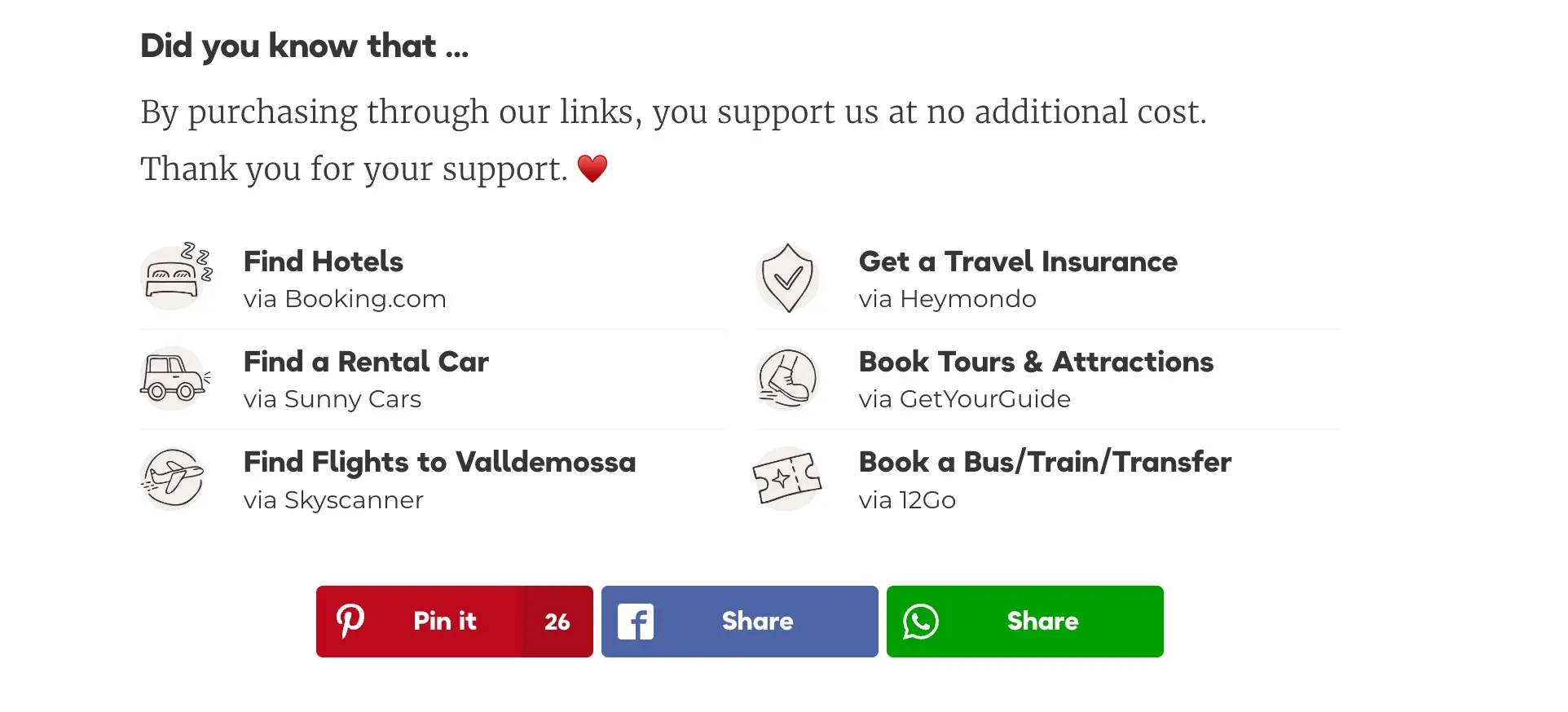
You'll also find WordPress plugins that show an affiliate link disclaimer at the top of your article. You can then link to your affiliate policy page. Consider including this when making an affiliate marketing website in WordPress.
9. Expecting Short-Term Results
If you're getting into affiliate marketing because you want to make $10,000 per month in the next 3-6 months, you're going to be very disappointed. Building a profitable affiliate website takes years, and you'll likely need to grind away for a few months before you even make a sale.
Don't be disheartened by that, though. Think about how many of your competitors will give up when they don't see instant results. You'll be successful by simply sticking with this game for the long run.
Set smaller goals along the way to stay motivated and look for enjoyment in the process. By doing these, you'll find the journey much more rewarding.
Summary
Affiliate marketing is one of the most beginner-friendly business models, but that doesn't mean it's easy. You need to understand your audience and promote products that you care about. Focusing on building a reliable website is also essential. By learning as you go along and sticking with things in the long run, you can succeed in any niche with affiliate marketing.
Frequently Asked Questions
Is affiliate marketing profitable?
Yes, affiliate marketing can be very profitable. Some sites earn over $10,000 per month in affiliate sales. However, it will take years of hard work with little initial reward.
How can I build trust with my audience for affiliate marketing?
Focus on publishing high-quality, long-form content that answers their questions. Where possible, consider adding personal anecdotes and reliable statistics.
How can I improve SEO for my affiliate content?
Focus on keywords, but don't stuff your articles with them. Sprucing up your category pages is a good idea, too. Other elements like site speed are similarly important.

Danny is a seasoned freelance copywriter with 10+ years of managing his own websites in WordPress and other content management systems. He's an expert in eCommerce and sells his own photography prints, in addition to knowing about hosting domains having used several providers. Danny's strong writing expertise is evident in his bylines across several major tech publications, including Lifewire, MUO, and Make Tech Easier.
View all posts by Danny Maiorca




















